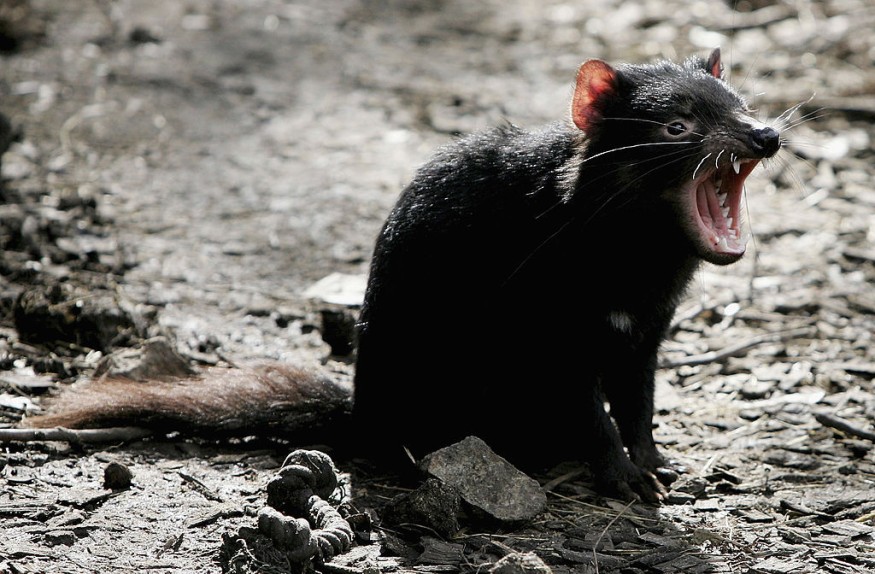Researchers discovered that scavengers usually consume whatever is available, although Tasmanian devils might be pickier than others.
They discovered that animals that scavenge rather than hunt for food have "opportunistic eating habits" to live. As a result, scavengers "cannot afford to be very picky" about what they eat.
The study, "Effects of Intraspecific Competition and Body Mass on Diet Specialization in a Mammalian Scavenger," published Ecology & Evolution.

One of 10 Tasmanian Devils Eat Like Other Scavengers
Tasmanian devils are some of the animals that have evolved scavenging adaptations. They might, however, be more selective than other scavengers.
The researchers set traps and collected Tasmanian devils at seven study sites in north-western Tasmania for their investigation. They next used whisker samples to investigate the critters' feeding habits. According to a press release from the University of New South Wales (UNWS), these bristles retain chemical fingerprints of their consumed food. The researchers examined 71 Tasmanian devil samples in all.
Study lead author Anna Lewis said that the team got stunned after discovering that Tasmanian devils did not want to consume the same food. . "Most of them [Tasmanian devils] just decided, 'No, this is my favourite food,'" Lewis said in a Cosmos Magazine report.
ALSO READ : Colorized Film of Tasmanian Tiger in Australia Shows What the Extinct Thylacine Might Look Like
Only one in ten Tasmanian devils, according to the researchers, eats a generalist diet like other scavengers, which means they consume whatever is available and handy. Most of them had a more specialized diet, eating primarily their preferred foods, which differed from one monster to the next.
The researchers discovered this feature in Tasmanian devils of all sizes, especially the heaviest ones.
@tweet|https://twitter.com/UNSW/status/1481032583991685122@
Tasmanian Devils 'Picky' Due to Lack of Competition
Researchers claimed that mass is a significant determinant of food choice or that dietary specialization is a more efficient foraging approach that allows people to gain more weight.
Researchers said Tasmanian devils' fussy dietary habits might be due to a lack of competition. Unlike in other parts of the world, such as Africa, where wildlife may face competition from other predators, Tasmanian devils only face competition from other Tasmanian devils, according to UNSW's Prof. Tracey Rogers, the study's senior author.
The researchers now want to figure out why the Tasmanian devils eat what they eat, such as if they choose their food deliberately or whether it's just what's available, according to UNSW. This might help researchers better understand scavenger diets and aid in their conservation in the case of Tasmanian devils, which is critical given the species' diminishing numbers.
Australian Museum said that habitat loss and food availability are both threats to Tasmanian devils. But the "biggest present hazard" is claimed to be Devil Facial Tumor Disease, a lethal infectious malignancy.
Tasmanian devils are listed as "endangered" on the IUCN Red List. As a result, learning more about their diets might aid in determining how to properly feed them in captivity, according to Lewis.
RELATED ARTICLE : Conservation and Relocation of Tasmanian Devils Endanger Local Little Penguin Population and Threatens Bird Species
Check out more news and information on Endangered Animals in Science Times.
© 2025 ScienceTimes.com All rights reserved. Do not reproduce without permission. The window to the world of Science Times.












